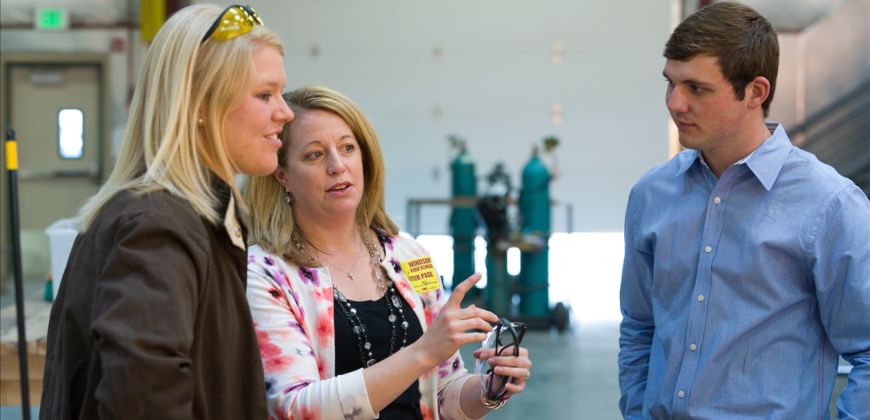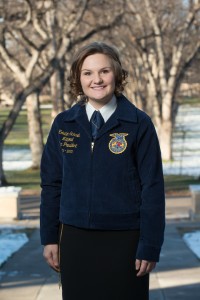
When the Future Farmers of America rebranded itself as simply FFA in the late 1980s, the organization wanted to be known as much for its agricultural education efforts as it was known for its roots in production agriculture. Now, over 25 years later, investments in agricultural education in the College of Agricultural Sciences at Colorado State University have led to new opportunities for students to become FFA leaders, to participate in national and regional conferences and to gain practical experience through FFA career development activities.
CSU students serve as national officers

National FFA is led by a team of six officers drawn from students all over the country. In the last three years, two CSU students – Landan Schaffert and Kristen Schmidt – have served as FFA national officers. “Having two national officers in such a short period of time is unheard of,” said Kellie Enns, assistant professor of agricultural education and director of the Agricultural Education program. “Because our college has reinvested in our ag ed program, we have seen renewed interest from students as well as from our partners in both Colorado FFA and the National FFA organization.”
To become involved in National FFA, students must first become involved in their local chapter of FFA. Some of the activities that both high school and college students take part in include career development experiences, judging teams, and public speaking opportunities. Many of these activities are also featured at the National FFA convention. This year, Emma Jones, a freshman majoring in agricultural education at CSU, was the winner of the National Prepared Public Speaking contest held at the national convention held in November.
Additionally, at this year’s convention, 14 CSU students were awarded American FFA degrees. American degrees are the highest level of achievement within FFA and represent long-term, consistent engagement within FFA as well as at least five years of leadership in agriculture.
The future of agriculture

“The number of American degree recipients coming from CSU testifies to the passion our students have for educating their communities about agriculture,” said Enns. “It is not an exaggeration to say that these students represent the future of agriculture, and our college positions them to be resources for younger students interested in agricultural careers as well as for members of the general public interested in learning more about where their food comes from.”
The Agricultural Education program does not end when students leave CSU. Many of the resources developed in the program as well as those made available by Colorado FFA are provided to current agricultural education teachers. “Empowering good teachers allows for the production of great students,” said Enns. “These students may come to CSU or study elsewhere, but they all benefit from the work we do here on campus.”
Shortage of ag teachers
Although the Agricultural Education program has been housed at CSU for a number of years – first in the School of Education and now in the College of Agricultural Sciences – both the college and the campus have directed resources to and generated visibility for the program. In fall 2015, the new CoBank Center for Agricultural Education was opened just north of campus. The center is a state-of-the-art facility that grew out of a public-private partnership with the Colorado FFA Foundation, Farm Credit Colorado, and the CSU College of Agricultural Sciences and was supported by a lead gift from CoBank.
“There is a shortage of ag teachers not just here in Colorado but across the country,” said Enns. “That these organizations want to invest in our program and that our students have been so visible within FFA both nationally and locally, demonstrates that agricultural education at CSU is having and will have a significant impact.”